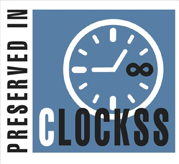Play prescription: intervention delivered at primary health care facilities to promote child development through activities at home
Antonio Rizzoli-Córdoba, Servicio de Pediatría del Desarrollo y la Conducta, Hospital Infantil de México Federico Gómez, Mexico City, Mexico
Martha C. Campos-Maldonado, Public Health and Epidemiological Surveillance Directorate, Secretaría de Salud de Puebla, Puebla, Mexico
Víctor H. Vélez-Andrade, Psychopedagogical Education Support Center, Secretaría de Educación Pública del Estado de Puebla, Puebla, Mexico
Christian A. Delaflor-Wagner, Investigación Biomédica, Centro Médico Nacional 20 de Noviembre, Instituto de Servicios y Seguridad Social para los Trabajadores del Estado, Mexico City, Mexico
Laura A. Hernández-Trejo, Department of Clinical and Health Psychology Coordination, Facultad de Psicología, Universidad Nacional Autónoma de México, Mexico City, Mexico
Daniel Aceves-Villagrán, Centro Nacional para la Atención de la Salud y la Adolescencia, Mexico City, Mexico
Miguel Á. Villasís-Keever, Unidad de Investigación en Análisis y Síntesis de la Evidencia, Hospital de Pediatría Centro Médico Nacional Siglo XXI, Instituto Mexicano del Seguro Social. Mexico City, Mexico
Background: Play is a fundamental component of children’s social, emotional, cognitive, and physical development. This study focused on assesses a play-based intervention method to promote overall child development based on parental involvement, delivered at primary care facilities. Methods: Quasi-experimental study was conducted with children 24-59 months old, regularly attending the monthly stimulation sessions in primary care facilities in the state of Puebla, Mexico, from November 2015 to April 2016. Play interventions were administered over six sessions each month 1-h length individually for the dyad, included free play time, and each session one activity at home that include the five areas of development and with some materials provided but encouraged to use more available at home. The Child Development Evaluation (EDI) test was administered at baseline, 3 and 6 months after the intervention. A comprehensive data set encompassing demographic variables was collected and analyzed. McNemar test was used to assess developmental changes over time. Results: The sample consisted of 276 children, 60.5% were male, median age 40 months (interquartile range: 34-46). All participants attend the six sessions and conducted activities daily at home. Overall, the percentage of children with abnormal result with EDI test was 77.2% at baseline and 17.4% final measurement at 6 months (p < 0.001), with mild-delay decreased from 39.9% to 6.9% and high-risk of delay from 37.3% to 10.5%. Conclusion: The play intervention resulted in a clinically and statistically significant improvement in the developmental outcomes of the children, both with normal/abnormal result at baseline.
Keywords: y. Health primary care. Child development. Mass screening. Developmental screening. Parenthood.



